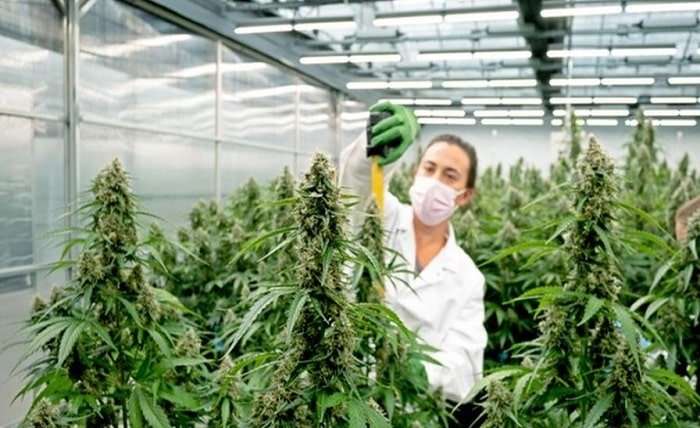The Role of Cannabis Seeds in Sustainable Agriculture

In recent years, hemp seeds have gained recognition for their potential contributions to sustainable agriculture. Their unique properties and diverse applications make them valuable in promoting environmental stewardship, economic viability, and social equity within agricultural practices.
This article delves into the various ways hemp seeds support sustainable agriculture, emphasizing their ecological benefits, economic opportunities, and role in advancing agricultural innovation. By exploring these aspects, you can better understand how hemp seeds are paving the way for more sustainable and resilient farming systems.
Soil Health Improvement
Cannabis seeds play a crucial role in enhancing soil health, a fundamental component of sustainable agriculture. Cannabis plants are known for their deep-rooting systems, which help break up compacted soil and improve aeration. This process enhances the soil’s ability to retain water and nutrients, making it more fertile and productive.
Additionally, cannabis plants contribute organic matter to the soil through leaf drop and root decomposition, increasing microbial activity and soil fertility. By cultivating cannabis, farmers can improve soil structure and health, leading to more sustainable crop production.
Crop Rotation Benefits
Incorporating cannabis into crop rotation systems offers significant benefits for sustainable agriculture. Crop rotation with cannabis can disrupt pest and disease cycles, reducing the need for chemical pesticides and herbicides.
Cannabis plants also have allelopathic properties, meaning they can suppress the growth of certain weeds, further minimizing chemical use. This practice not only enhances soil health but also promotes biodiversity and reduces the environmental impact of farming. By rotating cannabis with other crops, farmers can maintain a balanced and healthy agricultural ecosystem.
Water Conservation
Hemp seeds contribute to water conservation efforts, which are vital in sustainable agriculture. Cannabis plants are relatively drought-tolerant and require less water compared to many traditional crops. Their deep roots help access water from deeper soil layers, reducing the need for frequent irrigation. This characteristic makes cannabis a suitable crop for regions facing water scarcity or drought conditions. By integrating cannabis into their farming practices, growers can optimize water use and contribute to the sustainable management of water resources.
Biodiversity Enhancement
Growing cannabis can enhance biodiversity within agricultural landscapes, a key principle of sustainable agriculture. Cannabis plants attract a variety of beneficial insects, including pollinators such as bees and butterflies, which are essential for the health of many ecosystems.
The presence of cannabis can also provide a habitat for birds and other wildlife, supporting ecological balance. By promoting biodiversity, cannabis cultivation helps create resilient agricultural systems that can better withstand environmental stresses and contribute to overall ecosystem health. Enhancing biodiversity through cannabis farming supports sustainable agricultural practices.
Economic Opportunities for Farmers
Hemp seeds offer significant economic opportunities for farmers, which is an important aspect of sustainable agriculture. The growing demand for cannabis and its derived products, including CBD oil, textiles, and seeds, provides farmers with lucrative market opportunities. Cannabis can be cultivated for various purposes, including medicinal, recreational, and industrial uses, diversifying income streams for agricultural producers.
Additionally, the legalization and regulation of cannabis in many regions have opened new avenues for small-scale and independent farmers to participate in the market. By tapping into the economic potential of cannabis, farmers can achieve financial sustainability and stability.
Soil Erosion Prevention
Cannabis cultivation can help prevent soil erosion, a significant challenge in sustainable agriculture. The robust root system of cannabis plants helps anchor the soil, reducing the risk of erosion caused by wind and water. This stabilization effect is particularly beneficial in regions prone to soil degradation and loss. By maintaining soil integrity, cannabis cultivation supports long-term agricultural productivity and sustainability. Preventing soil erosion through cannabis farming practices contributes to the preservation of arable land and ecological balance.
Sustainable Livestock Feed
Hemp seeds and their by-products can be used as sustainable livestock feed, providing a nutritious alternative to conventional feed sources. Hemp seeds are rich in proteins, essential fatty acids, and other nutrients, making them a valuable animal feed ingredient. Using cannabis-based feed can reduce reliance on traditional feed crops, such as soy and corn, which often require intensive agricultural inputs and can lead to deforestation.
Legal and Regulatory Support
The evolving legal and regulatory landscape surrounding cannabis cultivation supports its role in sustainable agriculture. As more regions legalize and regulate cannabis, there are increased opportunities for research, development, and investment in sustainable cultivation practices. Legal frameworks can promote best practices, environmental stewardship, and fair trade within the cannabis industry.
This regulatory support enhances the viability and sustainability of cannabis farming, ensuring that it aligns with broader agricultural sustainability goals.
Conclusion
As the legal and regulatory environment continues to evolve, the potential for hemp seeds to contribute to sustainable agricultural practices will only grow. By embracing the advantages of cannabis cultivation, farmers and agricultural stakeholders can advance toward a more sustainable, resilient, and prosperous agricultural future.



